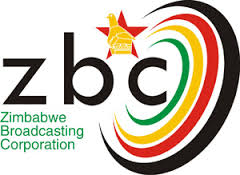Story by Tichaona Kurewa
THE government says the proposed increase in taxes and fees contained in the 2024 National Budget are meant to spread critical services to all parts of the country.
The proposed 2024 National Budget saw the government hint at an increase in tollgate fees, passport fees and introducing wealth tax, among other proposals.
This has generated an outcry from some citizens on various platforms, expressing dissatisfaction about the proposed measures.
In an interview on the sidelines of the maiden 2023 Annual Financial Inclusion Conference in Victoria Falls this Monday, Finance and Investment Promotion Minister, Professor Mthuli Ncube justified the proposals contained in the budget, indicating that the budget remains a proposal which may or may not be adopted.
He said, “The proposed increase in passport fees is meant to spread the services to all parts of the country and outside the country. When this is done, we will definitely review the fees downwards. As for the proposed increase in tollgates, we want to upgrade our roads, for instance, the Bulawayo-Victoria Falls which is being attended too. It is costly to construct roads it needs lots of money. As for the wealth tax, Zimbabwe like most countries in Africa has challenges with inequality and wealth tax is one way of redistributing the wealth and we have linked it to the value of property. Money in wealth tax will be used to develop urban infrastructure such as water which is currently a challenge.”
Professor Ncube indicated that, apart from taxes, other measures to raise funds are being pursued.
“We have since increased royalties for platinum and lithium to 7% from something that was as low as 2.5 %, that was progress. In the budget, I propose that there must be further beneficiation for instance, lithium must be refined to lithium carbonates. If this is not done, a company will pay an export tax as a penalty for meeting the beneficiation target. Once the minerals are beneficiated like that, will earn more in export earnings and that’s positive for the country.”
Meanwhile, the Reserve Bank of Zimbabwe (RBZ) indicated that the two-day maiden 2023 Annual Financial Inclusion Conference is seeking ways to broaden the uptake of financial services by the citizenry.
RBZ deputy governor, Dr Jesimen Chipika said, “This is an important event to the bank’s strategic focus in fostering inclusivity as it provides us an opportunity to engage directly with stakeholders in showcasing and celebrating the achievements made to date in promoting financial inclusion in Zimbabwe. Financial inclusion is not just a moral imperative but remains a key priority in promoting sustainable livelihoods, wealth, and employment creation. It also facilitates gender equality in line with the country’s Vision 2030 of an upper middle-income economy by 2030.”
Zimbabwe is already implementing the 2nd National Financial Inclusion Strategy launched in October last year.
The strategy is focused on increasing financial inclusion access and usage for special groups, including women and youth, micro-small and medium enterprises, rural communities, smallholder farmers, people with disabilities, pensioners, and the elderly.





